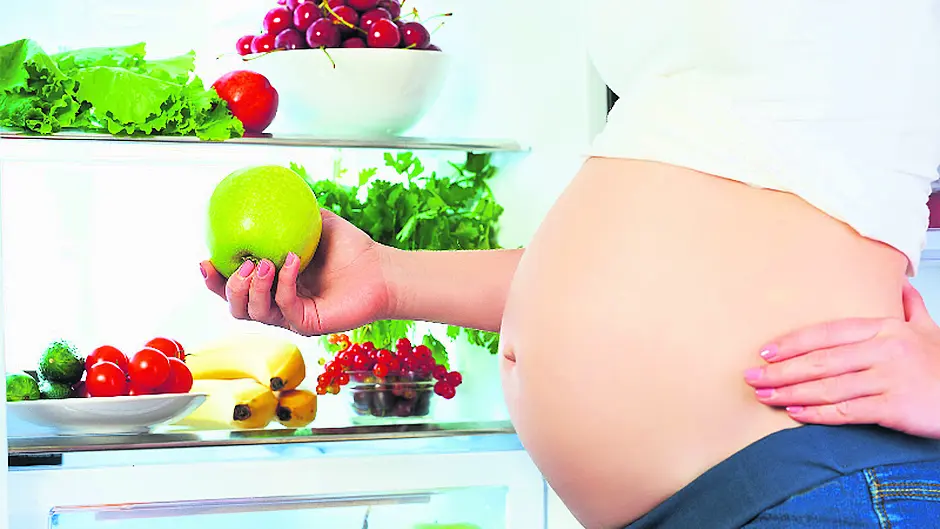It’s not about eating more, but rather about eating more mindfully
IT must be a seasonal thing, but I’ve had a lot of queries about pregnancy recently. And a new study caught my eye, suggesting that pregnant women should steer clear of paracetamol – traditionally deemed the only safe painkilling option at this time – because of links with harm to the developing brain, though I stress that this research is in its early stages (always better safe than sorry).
As for diet, my own feeling would be that the old idea of ‘eating for two’ arose during a time when food was much scarcer, as a way of getting expectant mothers to concentrate on the nutritional needs of their child as well as themselves rather than as an invitation to overeat. It can still be seen as a suggestion to eat with both mother and baby in mind – not more, just more mindfully.
Doctors say that you only need an extra two or three hundred calories daily, and only then from the second trimester. Some add that if you were overweight when you became pregnant, which can cause gestational and birth/later life problems, or if your activity levels drop off altogether, you don’t even need that (though you should never ‘diet’ during this time). The point is to make every calorie count, to make everything you eat as nutrient-dense as possible.
So the first thing to do is cut out all junk/refined/processed foods, and anything else that is either a source of empty calories or a threat to the pregnancy, the birth, and the future health of your child (and even your children’s children). That includes coffee (more than 2 cups a day can contribute to miscarriage), soft drinks and sugar.
While we’re on the subject of safety, avoid also raw or unpasteurised dairy products and eggs, mould ripened soft cheeses, and undercooked or cured meat and fish, and peel or wash all fresh produce very thoroughly. Pregnant women shouldn’t handle cat litter or garden soil (or help with the lambing!) because of the risk of toxoplasmosis.
While nothing is more important for the health of your child than meeting their nutritional needs in the womb, take a little care when it comes to taking supplements. This is one time when they are not only advisable but necessary, but vitamin A for example can be toxic to the foetus in large doses, which is why you shouldn’t eat A-rich liver or liver products, although the plant form found in orange/yellow/green fruit and veg can be eaten in unlimited amounts.
The advice is to stick to a multivitamin and mineral supplement that is specifically tailored for pregnancy, while looking for the highest strength version available, and not taking any other supplements with it. We know that folic acid, a B vitamin, is vital both before conception and in the first twelve weeks (only), and if you have a specific problem such as anaemia your doctor will advise you about iron supplements. Otherwise, a tailored multi should cover all the most important bases—vitamins B,C, and D, iron, calcium, selenium, zinc, and omega-3 oils. Along with protein, all of these are vital for normal physical and mental development.
They will also protect against everything from miscarriage, premature birth weight, low birth weight and neural tube defects to asthma, eczema, low immune function, and learning or behavioural difficulties further down the line. And for the mother, against morning sickness, anaemia, high blood pressure, pre-eclampsia, gestational diabetes, and postnatal depression.
Of course supplements designed for pregnant women will err on the side of caution when it comes to the levels of each crucial nutrient, so it’s really important to source them from the diet as described below. If I had to name the individual star players here, they would include oily fish—the warning is to avoid larger varieties such as shark, marlin and swordfish (not too much of a problem) and excess fresh tuna, because of the risk of mercury contamination—plenty of green vegetables, sea vegetables, nuts and seeds, wholegrains and beans, which contain all of those vitamins and minerals as well as protein, fibre and essential fats. And we know now that children develop their tastes partly based on what their mothers ate when pregnant, so in that sense you are eating for two.








